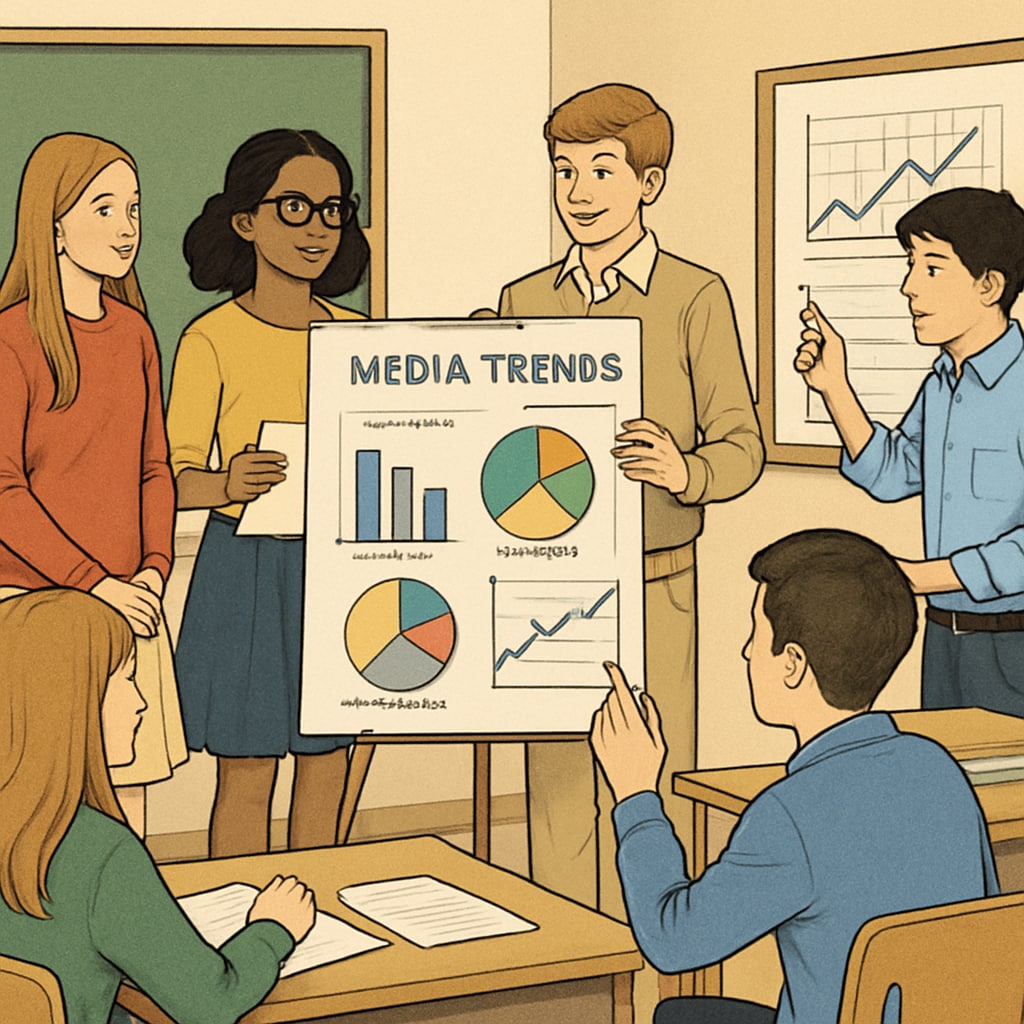In today’s rapidly evolving educational landscape, media research, questionnaire surveys, and academic support play a pivotal role in shaping future researchers. These practices, often introduced in K12 education, foster critical thinking, analytical abilities, and collaborative skills in young learners. By engaging students in research projects, educators provide them with an opportunity to question, analyze, and interpret data, preparing them for future academic and professional pursuits. This article delves into the importance of incorporating media research and surveys into K12 curriculums, the skills students develop through these projects, and how educators and communities can effectively support these initiatives.
The Role of Media Research in Education
Media research in K12 education goes far beyond simply analyzing television, social media, or news outlets. It encourages students to critically examine the information they consume daily, teaching them to question biases, identify credible sources, and understand the broader societal impact of media. For example, students may analyze how advertisements target specific demographics or how social media influences public opinion.
These research projects not only deepen students’ understanding of media literacy but also provide hands-on experience with data collection techniques like surveys and polls. By participating in these processes, students learn to design effective questionnaires, interpret responses, and present their findings. This iterative process is invaluable in developing critical thinking and data analysis skills.

How Questionnaire Surveys Enhance Critical Thinking
Questionnaire surveys serve as a cornerstone of many educational research activities. They allow students to explore real-world issues by collecting and analyzing data directly from their peers, families, or communities. This methodology not only teaches students how to ask meaningful questions but also introduces them to the ethical considerations of research, such as obtaining consent and ensuring confidentiality.
For instance, students conducting a survey on social media usage among teenagers may uncover patterns related to screen time, sleep, and academic performance. Such findings spark discussions about behavioral trends, empowering students to propose solutions or advocate for change. This hands-on approach bridges the gap between theoretical learning and practical application, fostering both critical thinking and problem-solving skills.

Supporting Academic Research in K12 Classrooms
Educators play a crucial role in guiding students through the complexities of academic research. Here are several effective strategies to support K12 research projects:
- Provide Clear Guidance: Teachers should outline the research process, including how to formulate hypotheses, design surveys, collect data, and analyze results. Breaking these steps down ensures students can follow the process confidently.
- Encourage Collaboration: Group projects help students learn from one another’s perspectives and skills. Collaborative efforts also mirror real-world research environments, preparing students for future teamwork.
- Use Technology: Digital tools such as online survey platforms, data visualization software, and presentation applications simplify the research process while making it more engaging for students.
- Involve the Community: Engaging local organizations, parents, and experts can provide students with diverse data sources and insights, enriching their research experience.
Additionally, schools can foster a culture of research by organizing events like science fairs, media literacy workshops, and student-led presentations. These platforms allow students to showcase their work, receive constructive feedback, and build confidence in their abilities.
The Broader Impact of Early Research Experience
Introducing media research and questionnaire surveys in K12 education equips students with skills that extend far beyond the classroom. By learning to critically evaluate information, communicate ideas effectively, and collaborate with peers, students are better prepared for higher education and the workforce. Moreover, these experiences inspire a sense of curiosity and a drive for lifelong learning.
For example, students who participate in such projects often pursue careers in data science, journalism, education, or social research. Their ability to analyze data, understand public opinion, and propose evidence-based solutions makes them valuable contributors to society. Therefore, investing in these educational practices is a step toward nurturing informed and socially responsible citizens.
In conclusion, media research, questionnaire surveys, and academic support are more than just academic exercises—they are transformative tools that shape future researchers and critical thinkers. By introducing these practices in K12 education, we provide students with the foundation they need to navigate an increasingly data-driven world. Together, educators, families, and communities can support these efforts, ensuring that the next generation is equipped to understand and address the challenges of tomorrow.


